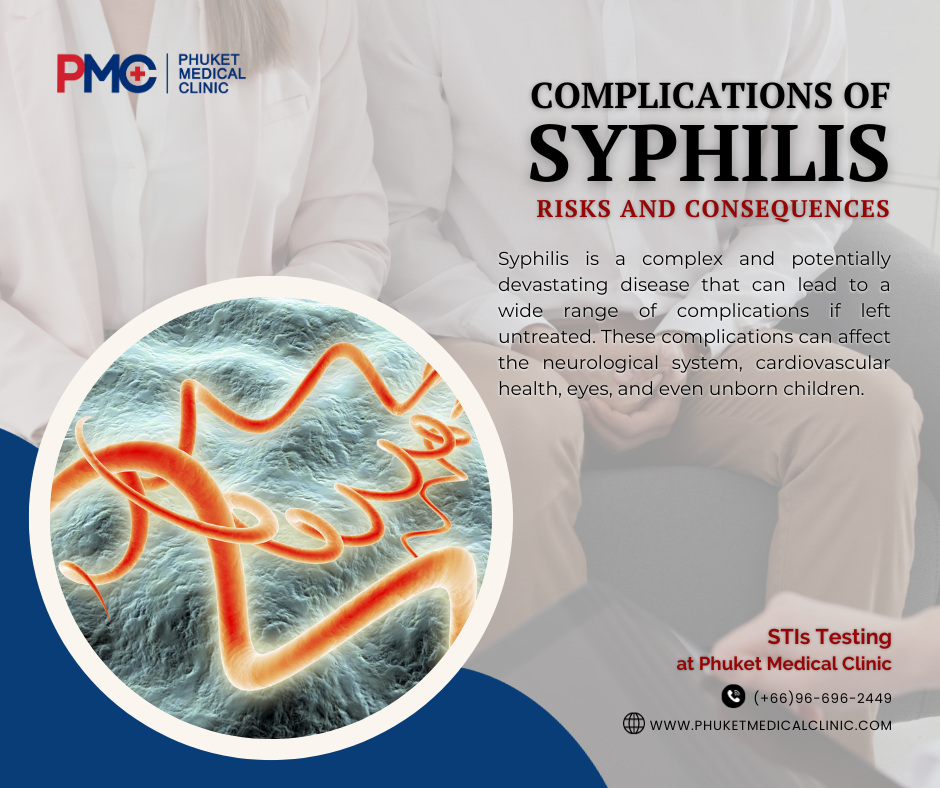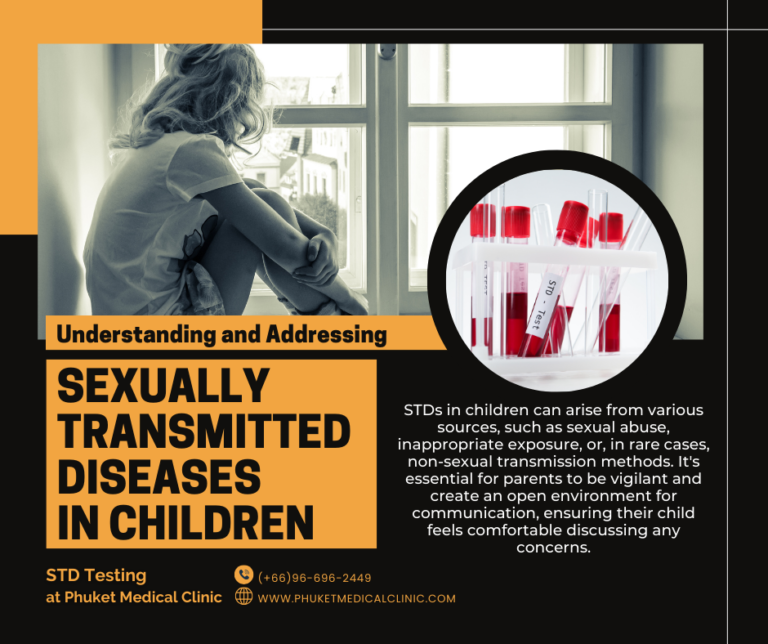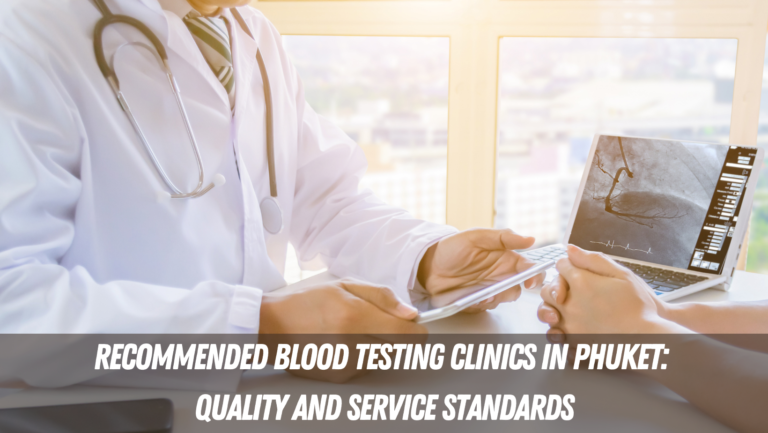Syphilis, a sexually transmitted infection (STI) caused by the bacterium Treponema pallidum, is a persistent public health concern worldwide. While its primary symptoms may initially seem mild or even go unnoticed, syphilis can lead to severe complications if left untreated. In this article, we will explore the various complications associated with syphilis and underscore the importance of early diagnosis and treatment.

- Neurosyphilis
One of the most alarming complications of syphilis is neurosyphilis, which occurs when the bacterium invades the central nervous system. Neurosyphilis can manifest in several forms, including asymptomatic neurosyphilis, syphilitic meningitis, and more severe forms such as syphilitic gumma and tabes dorsalis.
Symptoms of neurosyphilis can range from mild headaches and altered behavior to severe cognitive impairment, vision problems, and even paralysis. Prompt treatment with antibiotics, usually penicillin, is crucial to prevent further neurological damage. - Cardiovascular Syphilis
Cardiovascular syphilis affects the heart and blood vessels and typically occurs years after the initial syphilis infection. It can lead to various cardiovascular complications, including aortic aneurysms and aortic insufficiency (leaky heart valve). These complications can be life-threatening if not treated promptly. Regular follow-up care and close monitoring are essential for individuals with a history of syphilis. - Ocular Syphilis
Syphilis can also affect the eyes, leading to a condition known as ocular syphilis. Symptoms may include vision impairment, redness, eye pain, and even blindness. Ocular syphilis can occur at any stage of syphilis and should be treated promptly to prevent permanent vision loss. - Congenital Syphilis
Pregnant individuals with untreated syphilis can transmit the infection to their unborn child, resulting in congenital syphilis. This condition can lead to a range of serious health problems in infants, including developmental delays, bone abnormalities, anemia, and even stillbirth. Routine prenatal care and syphilis screening during pregnancy are crucial to prevent congenital syphilis. - Skin and Mucous Membrane Lesions
Syphilis can cause a variety of skin and mucous membrane lesions, including syphilitic rash, syphilitic gumma (soft, tumor-like growths), and mucous patches. These lesions are not only unsightly but can also be painful and increase the risk of secondary bacterial infections. - Increased Risk of HIV Transmission
Syphilis can increase the risk of acquiring or transmitting HIV infection. Individuals with syphilis sores or lesions are more susceptible to HIV infection if exposed to the virus. Additionally, the presence of syphilis can lead to higher viral loads in people living with HIV, making them more contagious.
Syphilis is a complex and potentially devastating disease that can lead to a wide range of complications if left untreated. These complications can affect the neurological system, cardiovascular health, eyes, and even unborn children. Preventing syphilis through safe sexual practices and regular STI screenings is essential. For those who do contract syphilis, early diagnosis and appropriate antibiotic treatment are key to preventing severe complications and improving overall health. Remember, knowledge and proactive measures are your best allies in the fight against syphilis and its complications.
STIs Testing & Treatment at Phuket Medical Clinic
Phuket Medical Clinic : Close, Expert Care. Dedicated Medical Professionals and Skilled Team providing Consultation and Treatment. Walk-in or Scheduled Appointments for Convenient and Efficient Services.
Book an appointment online : https://phuketmedicalclinic.youcanbook.me
Daily Open 🕙 10:00-18:00
Contact number ☎️ 096-696-2449
Line id : @pmcphuket or https://lin.ee/R1TKRDo
Map 📌https://goo.gl/maps/xu45eTQUTjgpukJa7
Website 🌐https://pmcclinicphuket.com
Feel free to consult with a doctor or ask further questions anytime.
Inbox : m.me/100483916443107
#healthcareclinic #คลินิกภูเก็ต
Phuket #Clinic #ภูเก็ตเมดิคอลคลินิก
#Phuketmedicalclinic






